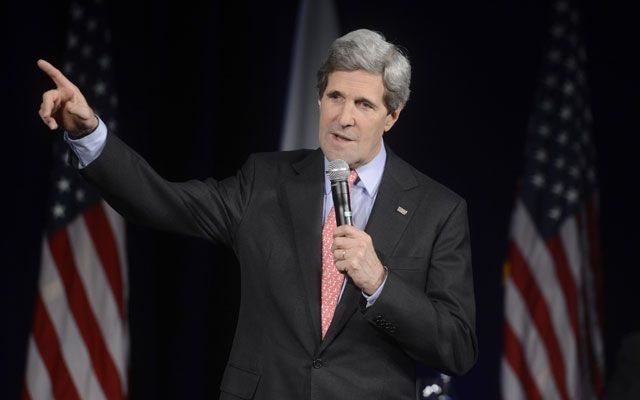Bad Deal for the U.S.: Kerry on Missile Defense
Michaela Dodge /
U.S. Secretary of State John Kerry stated during his recent trip to China that the U.S. would withdraw some of its missile defenses if China can persuade North Korea to abandon its nuclear weapons program. It is optimistic to assume that China would be interested in persuading North Korea to give up its nuclear weapons program, because North Korea developed it thanks to China.
Even in the unlikely event that North Korean nuclear weapons go away, which would be extremely hard to verify, North Korea could still threaten mass casualties with ballistic missiles that could deliver explosives or chemical and biological weapons. In addition, North Korea appears to be increasing its interest in nuclear weapons and just recently threatened to use them on the U.S. And let’s not forget that U.S. intelligence estimates of North Korean capabilities proved wrong in the past.
Recently, Representative Doug Lamborn (R–CO) pointed to a Defense Intelligence Agency’s (DIA) assessment with moderate confidence that North Korea has nuclear weapons capable of delivery by ballistic missiles. The DIA’s assessment is not new. North Korean ballistic missile and nuclear weapons capabilities are real, and the threat has long been known.
A long-range ballistic missile, such as the one North Korea is developing, can reach anywhere in the world in 33 minutes. It is logically inconsistent that the U.S. would protect itself from North Korean missiles but not from the Chinese or Russian ballistic missiles. When a ballistic missile is in the air en route toward its victims, it doesn’t matter whether it happens to be launched from Russia or North Korea or Iran.
The U.S. and its allies need a comprehensive layered ballistic missile defense system. The Administration should increase its missile defense funding and develop and deploy a layer-comprehensive ballistic missile defense program, including space-based interceptors that would provide the best protection against most classes of ballistic missiles.

